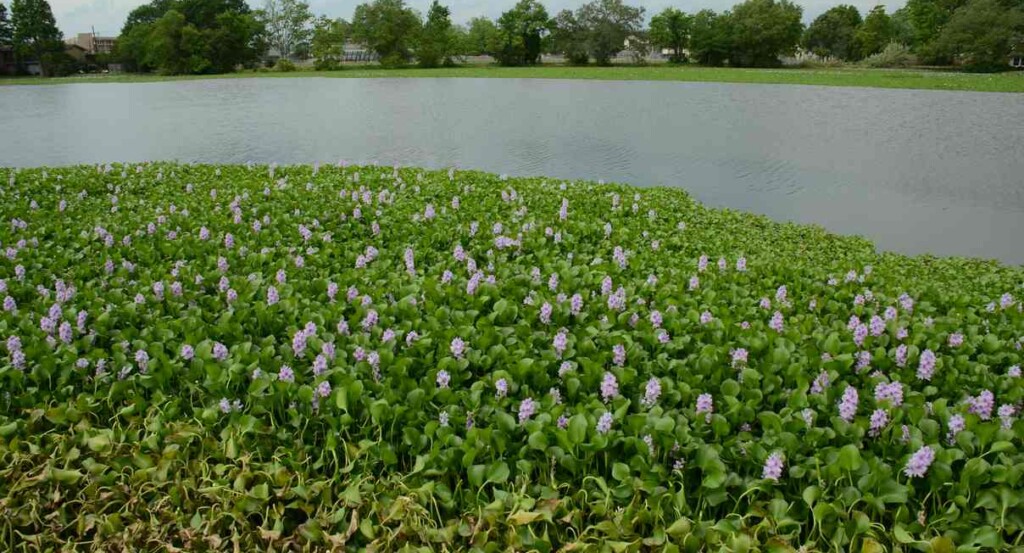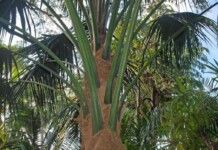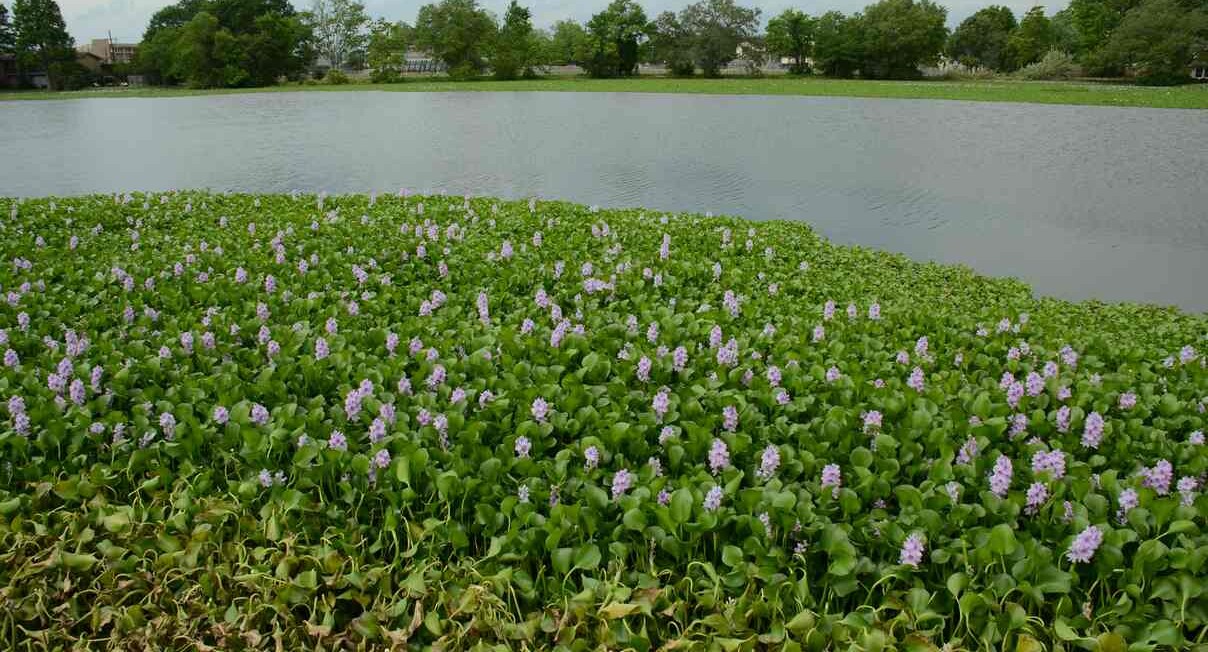
The most invasive species on Earth is not a mouse or boar, but the water hyacinth.
Blooming in an ornamental pond, the water hyacinth seems lovely and harmless, but look at how it can take over freshwater ecosystems like Kenya’s Lake Naivasha, and one can understand why the UN set up a program specifically to combat this aquatic plant.
Connecting environmental work with business, low-income rural villagers with jobs, and incentives with issues, Hyapak Ecotech Limited is turning this plant pest into plastic that biodegrades.
When the water hyacinth spreads across Lake Naivasha, (a phenomenon that can be seen from space) it chokes the life out of many native species. Casting a net or line into the waters beneath is a hopeless exercise for local fishermen who rely on native fish for income. CNN reports that, entering a hyacinth patch, a man became so entangled it took a government helicopter to free him.
As long as the hyacinth is destroying the livelihood of the fishermen, HyaPak offers to pay them for as much hyacinth as they want to collect. It’s then dried, processed, and turned into biodegradable alternatives to single-use disposable plastic products like wrappers, straws, tumblers, and party plates.
Thusly incentivized, locals have so far cleared around 47 acres of water hyacinth from the lake.
HyaPak founder Joseph Nguthiru embarked on his entrepreneurial journey after taking a trip on Lake Naivasha and getting moored in the hyacinth for 5 hours. At the time, the Kenyan economy was adjusting to a government decision to ban single-use plastic items. No domestic supply of alternative products was available, and plastic shopping bags became a common item of choice for smugglers.
MORE GREAT AFRICAN INNOVATIONS: Female Entrepreneur Set to Revolutionize Transportation for All of Africa, After Transforming her Native Ghana
Fishermen on the lake speaking with CNN said they’re pleased to have the opportunity to make the extra income selling hyacinth to Nguthiru.
The opportunities may continue if the upcoming partnership between HyaPak and Kenya’s Forestry and Land Restoration Acceleration program succeeds.
This government initiative to plant 15 billion tree seedlings will need little soil bags for those seedlings to grow in. Nguthiru and his 45-strong team have so far created 30,000 seedling bags out of water hyacinth for the program. Rather than producing emissions and creating trash, the HyaPak bags hold water in the soil where they slowly degrade, releasing nutrients like nitrogen.
“You offset the carbon emissions that are going to be produced, you’ve used less water, you’ve added more nutrients… it’s a win-win situation for communities, for the planet, and for yourself as a farmer,” Nguthiru told CNN.
HyaPak is already exporting to the US and Germany, and will soon expand to India and El Salvador: two countries plagued by water hyacinth.
SHARE This Enterprising Man Creating Change For His Community And The World…




















